Industry College Networking 2023
This conference will address cross-sector collaborations by bringing together past and current Royal Society Industry Fellows, Entrepreneurs in Residence and their collaborators.
Participants will have the opportunity to hear what other network members are working on, participate in workshops surrounding issues facing industry scientists in the UK, and hear about the wider work of the Royal Society as a whole.
Attending this event
As well as new and current Industry Fellows and Entrepreneurs in Residence, there will be a limited number of places at this event for others interested in the relationship between industry and academia.
If you would like to attend, please email industry@royalsociety.org with a short explanation as to why you are interested in the event. As places are limited, we cannot guarantee that there will be spaces available.
Schedule
| 09:30-09:35 |
Welcome and Industry programme update
Professor Joe Sweeney, University of Salford
Professor Joe Sweeney, University of SalfordProfessor Joe Sweeney was awarded a BSc in Chemistry and elected an Associate of the Royal College of Science at Imperial College, and carried out a PhD studying synthetic uses of aziridines and allylstannanes at the University of Oxford. In 1990, Joe was appointed as Lecturer in Chemistry at the University of Bristol where he developed research projects focused on new methods for preparation and use of polyhydroxylated ring structures, aziridines and metalled furanones, and the total synthesis of several naturally-occurring lactones. He then moved to a Readership in Organic Chemistry at the University of Reading. In 2007, Joe was awarded the inaugural Faculty Output Prize at the University of Reading for his group's publication on asymmetric rearrangements, and became Professor of Synthesis and Chemical Biology. In 2008, Joe was awarded a Royal Society Industry Fellowship with AstraZeneca, which was later extended. Joe is now Dean for the School of Science, Engineering and Environment at the University of Salford. |
|---|
Chair
Dr Fiona Marston OBE, Royal Society Entrepreneur in Residence at the Liverpool School of Tropical Medicine
Dr Fiona Marston OBE, Royal Society Entrepreneur in Residence at the Liverpool School of Tropical Medicine
| 09:35-09:45 |
Past Entrepreneur in residence reflections
Dr Fiona Marston OBE, Royal Society Entrepreneur in Residence at the Liverpool School of Tropical Medicine
Dr Fiona Marston OBE, Royal Society Entrepreneur in Residence at the Liverpool School of Tropical Medicine |
|---|---|
| 09:45-09:50 |
Entrepreneur in residence
Nav DeanRuff Nav DeanRuff |
| 09:50-09:55 |
Entrepreneur in residence
Dr Tim Hammonds
Dr Tim Hammonds |
| 09:55-10:00 |
Entrepreneur in residence
Patrick O'ConnellHelliers Ltd Patrick O'ConnellHelliers Ltd Patrick O’Connell grew up in a family business recycling truck tyres by reengineering, to produce tyres for a second life as good as new. As MD he steered the business in a change of strategy to manage over 1 million wheel positions and create a lease model for truck tyres as pay per use. Servitisation combined with the Circular Economy proved a success and in 2016 the business was sold to one of the top 5 New Tyre companies in the world. He now runs a mixed portfolio of investments and is always looking for another good idea. |
| 10:00-10:05 |
Entrepreneur in residence
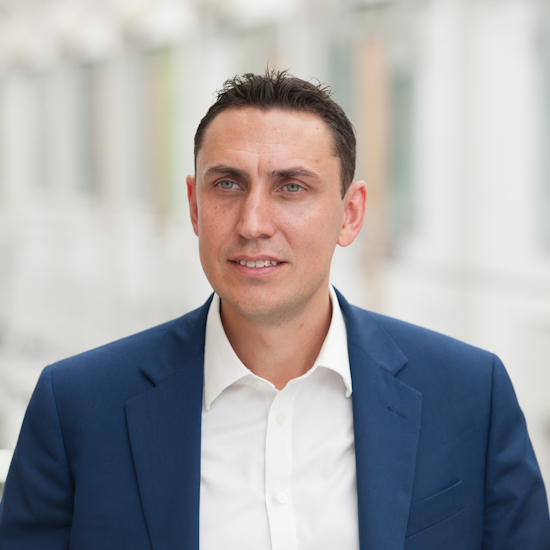
Dr Martin WhitakerD3 Pharma Limited 
Dr Martin WhitakerD3 Pharma Limited Martin has over 20 years’ experience working in the pharmaceutical industry. Martin was Chief Executive Officer of Diurnal Group plc and led the company for nearly 15 years including the floatation of Diurnal on the London Stock Exchange (AIM) in 2015 in a £75m IPO. Martin was an inventor of the company’s lead products: Alkindi® and Efmody® which have now been approved worldwide for the treatment of rare diseases of cortisol deficiency. Martin was responsible for the subsequent commercialisation of these products before the eventual sale of Diurnal to Neurocrine Biosciences in 2022. Martin is also Director of D3 Pharma Limited which has successfully commercialised Plenachol®, a high dose Vitamin D product prescribed in the UK. Previously, Martin worked for Fusion IP plc with responsibility for commercialising research from the Faculty of Medicine, Dentistry and Health at the University of Sheffield. Martin is a scientist by background and holds a PhD in Pharmaceutical Science from the University of Nottingham and a BSc (Hons) in Biochemistry from the University of Bristol. Martin also spent a year working for the pharmaceutical company, Pfizer, in Sandwich (UK). |
| 10:05-10:10 |
Entrepreneur in residence
Dr Taj MattuNidor Diagnostics Limited Dr Taj MattuNidor Diagnostics Limited |
Chair
Professor I. David Abrahams, Director of the Isaac Newton Institute, University of Cambridge
Professor I. David Abrahams, Director of the Isaac Newton Institute, University of Cambridge
David Abrahams is an applied mathematician specialising in the modelling, analysis and application of waves found in a wide range of application areas in physics and engineering. He is concerned with phenomenological questions as well as developing the underpinning mathematical analysis for the subject, and his research has broad application. He has recently become Professor of Applied Mathematics at Cambridge University, having completed his term (2016-2021) as NM Rothschild & Sons Professor of Mathematical Sciences and Director of the Isaac Newton Institute for the Mathematical Sciences (INI), Cambridge. David is a keen proponent for knowledge exchange in the mathematical sciences and recently directed the Newton Gateway to Mathematics, which facilitates this endeavour.
David holds Visiting Researcher/Honorary Professorship positions at Manchester, Edinburgh and Aberystwyth Universities, which allow him to interact with staff members there and maintain a broader perspective on research and community activity. He plays an active role within the international mathematics community, having served on over thirty national and international working parties, panels and committees over the last decade. In particular, He was President of the Institute of Mathematics and its Application in 2008-2009, Deputy Chair for sub-panel B10 (Mathematics) in the 2014 REF, and Chair of EPSRC’s Mathematical Sciences Strategic Advisory Team (2014-15). David is also spearheading the creation of a Connected Centres Network to promote and facilitate knowledge exchange activities across all mathematical sciences departments around the United Kingdom.
Over his career, David has made contributions to many fields, including acoustics, aeroacoustics, water waves, optics, elasticity, non-destructive evaluation and seismology. He maintains long-standing and close working links with a number industrial partners (e.g. in recent years Dyson, AWE and DSTL), As Royal Society Industry Fellow he will spend 50% of his time working with Thales UK on noise-reducing coatings for underwater vehicles and other projects.
| 10:15-10:25 |
Past Industry Fellow reflections
Professor I. David Abrahams, Director of the Isaac Newton Institute, University of Cambridge
Professor I. David Abrahams, Director of the Isaac Newton Institute, University of CambridgeDavid Abrahams is an applied mathematician specialising in the modelling, analysis and application of waves found in a wide range of application areas in physics and engineering. He is concerned with phenomenological questions as well as developing the underpinning mathematical analysis for the subject, and his research has broad application. He has recently become Professor of Applied Mathematics at Cambridge University, having completed his term (2016-2021) as NM Rothschild & Sons Professor of Mathematical Sciences and Director of the Isaac Newton Institute for the Mathematical Sciences (INI), Cambridge. David is a keen proponent for knowledge exchange in the mathematical sciences and recently directed the Newton Gateway to Mathematics, which facilitates this endeavour. David holds Visiting Researcher/Honorary Professorship positions at Manchester, Edinburgh and Aberystwyth Universities, which allow him to interact with staff members there and maintain a broader perspective on research and community activity. He plays an active role within the international mathematics community, having served on over thirty national and international working parties, panels and committees over the last decade. In particular, He was President of the Institute of Mathematics and its Application in 2008-2009, Deputy Chair for sub-panel B10 (Mathematics) in the 2014 REF, and Chair of EPSRC’s Mathematical Sciences Strategic Advisory Team (2014-15). David is also spearheading the creation of a Connected Centres Network to promote and facilitate knowledge exchange activities across all mathematical sciences departments around the United Kingdom. Over his career, David has made contributions to many fields, including acoustics, aeroacoustics, water waves, optics, elasticity, non-destructive evaluation and seismology. He maintains long-standing and close working links with a number industrial partners (e.g. in recent years Dyson, AWE and DSTL), As Royal Society Industry Fellow he will spend 50% of his time working with Thales UK on noise-reducing coatings for underwater vehicles and other projects. |
|---|---|
| 10:25-10:30 |
Industry Fellow 2023
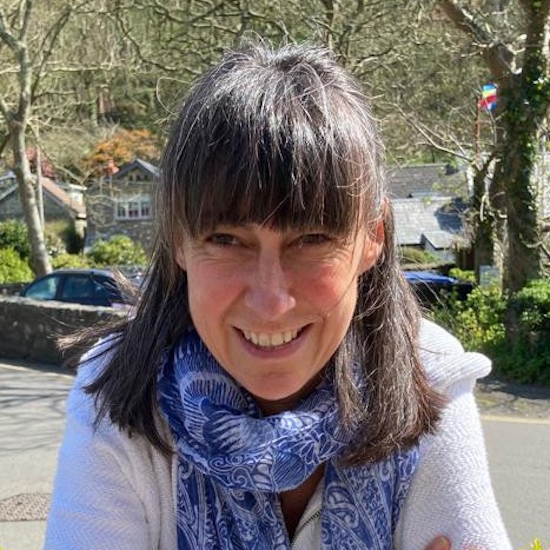
Professor Sofia ConsuegraSwansea University 
Professor Sofia ConsuegraSwansea University Sofia is a Molecular Ecologist with a broad, international professional experience, having worked both for Government and in Academia. Her work (both research and lecturing) is primarily focused on conservation genetics, molecular ecology and resource management (fisheries and aquaculture), mainly but not exclusively, on aquatic organisms. She worked for six years as a Scientific Advisor for the Cantabria Government (Spain) before being awarded a PhD in Conservation Genetics and moving to an academic pathway in the UK, where she did postdocs at the Institute of Zoology in London and the University of St Andrews before starting a Lectureship at the University of Aberystwyth in 2008, and then moving to Swansea in 2013, where she is currently a Professor of Evolutionary Ecology. |
| 10:30-10:35 |
Industry Fellow 2023
Professor Jonathan MorrisonImperial College London Professor Jonathan MorrisonImperial College London Jonathan Morrison holds the chair of Experimental Fluid Mechanics in the Department of Aeronautics at Imperial College. His work focuses on fundamentals of turbulent flow and the instabilities that define the ‘route to chaos’ and turbulence, one of the greatest unsolved problems in physics (Feynman). Recent experiments have particular relevance to the generation of drag, energy loss and emissions in fluid-based systems. His approach is multidisciplinary, using a novel blend of smart materials, modern control theory and fluid mechanics to control fluid flow to improve the efficiency of fluid-based systems, especially for the reduction of drag (and therefore emissions) in the transport sector. With initial support of £13.3m from EPSRC and the Aerospace Technology Institute, he founded in 2014 the UK National Wind Tunnel Facility (NWTF) which comprises 22 strategically important wind tunnels distributed across 12 universities. Recently announced further funding of £23m from UKRI will enable the construction of a further 11 new facilities with one new additional member. He has been Visiting Research Fellow at Princeton University (1999-2000; July-September 2001 & 2002) and is Fellow of the Royal Aeronautical Society. In 2014, he led an exhibit at the Royal Society Summer Exhibition, Smart Wing Design: Science Imitating Nature. |
| 10:35-10:40 |
Short Industry Fellow 2022
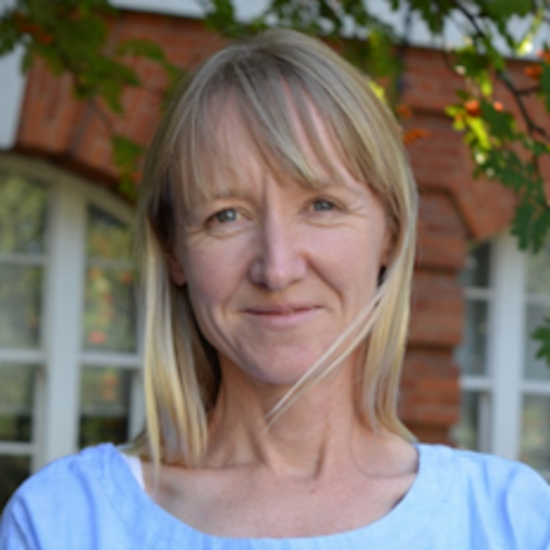
Dr Emma VealeUniversity of Kent 
Dr Emma VealeUniversity of Kent Emma joined Medway School of Pharmacy, Universities of Kent and Greenwich in 2007, as a research associate, having previously worked as a research assistant at Imperial College London. In 2017, she obtained my PhD by published works, studying the regulation of mammalian ion channels using a combination of molecular biology and patch-clamp electrophysiological techniques. In 2020, she became a senior research fellow. Her focus over many years has been characterising the role of potassium channels in neurons and in clinical variants of disease. She has worked with industry (Galleon, Pfizer, LifeArc), to develop novel pharmacological mediators of these channels, for conditions such as pain and with clinicians at the Mayo Clinic and worldwide to profile the genetic disease, KCNK9 Imprinting Syndrome. She has branched into practice-based community research, leading a successful project screening for Atrial Fibrillation in primary care, using a novel algorithm-based electrocardiogram device. The project won several awards, including two from the Atrial Fibrillation Association and a “Women in Science and Engineering” award in 2019, for the inspirational use of new technology. Her Royal Society Short Industry Fellowship together with Metrion Biosciences is to develop potassium channel cell lines for small molecule and toxin screening. |
| 10:40-10:45 |
Industry Fellow 2023
Dr Becky BriantBirbeck, University of London Dr Becky BriantBirbeck, University of London |
| 10:45-10:50 |
Industry Fellow 2023
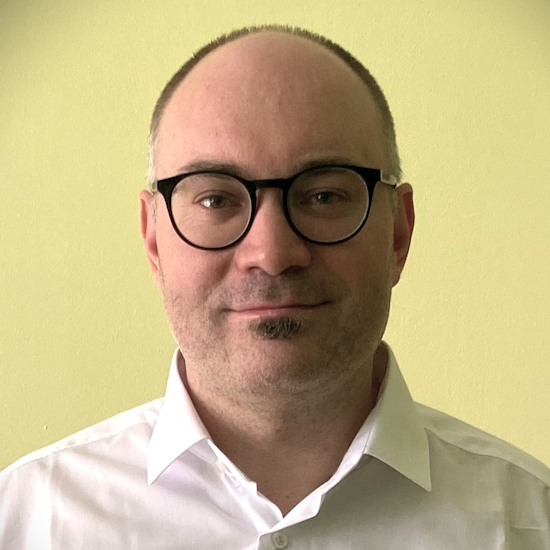
Professor Stefan GuettelUniversity of Manchester 
Professor Stefan GuettelUniversity of Manchester Stefan Güttel is Professor of Applied Mathematics at the University of Manchester. His work focuses on computational mathematics. Stefan has received several international prizes for his work, including the 2023 Taussky–Todd Prize of the International Linear Algebra Society, and the 2021 James H. Wilkinson Prize in Numerical Analysis and Scientific Computing of the Society of Industrial and Applied Mathematics. Stefan pursues his Royal Society Industry Fellowship at Arup, a multinational professional services firm that provides design, engineering, architecture, planning and advisory services across every aspect of the built environment. His project explores how novel techniques from randomized numerical linear algebra can enable Arup's engineers to simulate complex structural designs rapidly, accurately and with confidence, ensuring that they are safe, sustainable and serviceable. |
| 10:50-10:55 |
Industry Fellow 2023
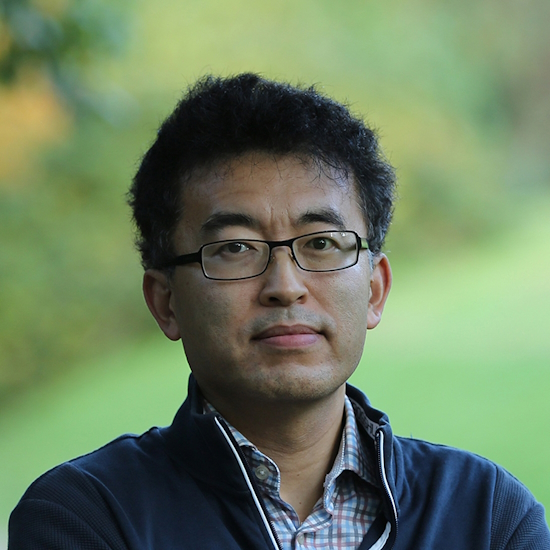
Professor Chenfeng LiSwansea University 
Professor Chenfeng LiSwansea University Chenfeng Li (FLSW), Professor of Civil Engineering and Personal Chair in Computational Engineering, is internationally recognized for his research in computational solid mechanics, computational fluid dynamics, physics-based data mining, and visual computing. Professor Li has developed innovative computational solutions to tackle technical challenges in civil engineering, materials science, geo-mechanics, oil & gas reservoirs, and manufacturing. His expertise has been sought after by various organisations in the infrastructure and construction sectors. Within Swansea University, he serves as the Director for the Zienkiewicz Institute for Modelling, Data and AI. Additionally, he serves as a Non-executive Director for the trade organization Temporary Works Forum and the Editor-in-Chief of Engineering Computations. |
| 10:55-11:00 |
Short Industry Fellow 2022
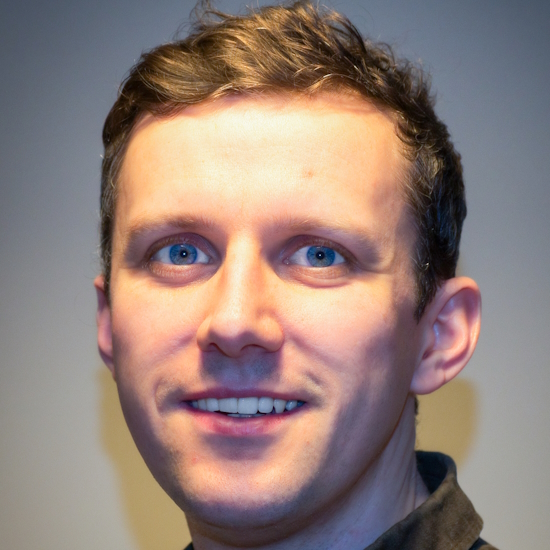
Dr Gregory ReesUniversity of Oxford 
Dr Gregory ReesUniversity of Oxford Gregory Rees received his M.Sc. (Chemistry, 2008) and Ph.D. (Physics, 2012) from the University of Warwick. Greg joined Bruker UK Ltd in 2012 as an applications scientist, 2014 he took up a postdoctoral position in materials solid-state NMR back in Warwick (Physics), and in 2018 became a research fellow at the University of Nottingham (Medicine) specializing in multinuclear magnetic resonance imaging (MRI). He joined the Department of Materials, University of Oxford in February 2019, initially working on the CATMAT project before moving to the SOLBAT project in 2023. His research interests include developing magnetic resonance methodologies to understand dynamics in energy materials. Greg currently holds a Royal Society short-industry fellowship with Oxford Instruments, where he is developing a benchtop pulsed field gradient (diffusion) nuclear magnetic resonance instrument to quantify lithium-ion dynamics in electrolytes utilized in next-generation batteries. |
Chair
Dr Alicia Greated, Chief Executive Officer, KTN
Dr Alicia Greated, Chief Executive Officer, KTN
Alicia Greated is the Chief Executive Officer for KTN.
Previously Alicia was Global Director, Research Engagement at Heriot-Watt University and prior to that, led delivery of the Newton Fund (a £735million global research and innovation fund) on behalf of BEIS, UK government.
She was also founder and Director of Research Council UK (RCUK) India at the British High Commission in Delhi, and Director RCUK China at the British Embassy in Beijing. She has worked as acting Director of Research for the Arts and Humanities Research Council (AHRC) and was Head of Engineering at the Engineering and Physical Sciences Research Council (EPSRC).
Alicia is a Fellow of the Institution of Engineering and Technology, Fellow of the RSA and member of the UK Government’s Jet Zero Council. She is also member of a number of advisory bodies including the Royal Society’s Science, Industry and Translation Committee and the Scottish Funding Council’s Research and Knowledge Exchange Committee.
| 11:30-11:50 |
How do you measure impact?
Dr Stephen ChambersIndieBio NY Dr Stephen ChambersIndieBio NY |
|---|---|
| 11:50-12:10 |
Innovate UK strategy, funding and support
David LeggInnovate UK David LeggInnovate UK |
| 12:10-12:30 |
Spinout and industry partnership: a personal perspective
Professor Bashir Al-Hashimi FREng, Professor of Computer Engineering, University of Southampton
Professor Bashir Al-Hashimi FREng, Professor of Computer Engineering, University of SouthamptonBashir M. Al-Hashimi is Professor of Computer Engineering and the Dean of the Faculty of Physical Sciences and Engineering, University of Southampton, where he is holds an ARM Professorship. Prior to becoming an academic, he worked in the UK electronics industry for eight years. He is FREng, FIEEE, FIEE, and FBCS. Professor Al-Hashimi is a well-established national and international leader in the theory and practice of energy-efficient computing, undertaking fundamental and experimental research on hardware-software co-design for energy efficiency. He has received a number of international awards for his research. He published 360 technical papers; five research books, and graduated 35 PhD students. Professor Al-Hashimi is currently the Project Lead of the EPSRC Programme PRiME (Power-Efficient, Reliable, Many-core Embedded systems). In 2013, he led a research consortium funded by EPSRC investigating Battery-Free Electronics, one of the themes of the UK Microelectronics Design Grand Challenges. |
| 13:30-14:45 |
Having impact as a Royal Society EiR/Industry Fellow
Dr Alicia Greated, Chief Executive Officer, KTN
Dr Alicia Greated, Chief Executive Officer, KTNAlicia Greated is the Chief Executive Officer for KTN. Previously Alicia was Global Director, Research Engagement at Heriot-Watt University and prior to that, led delivery of the Newton Fund (a £735million global research and innovation fund) on behalf of BEIS, UK government. She was also founder and Director of Research Council UK (RCUK) India at the British High Commission in Delhi, and Director RCUK China at the British Embassy in Beijing. She has worked as acting Director of Research for the Arts and Humanities Research Council (AHRC) and was Head of Engineering at the Engineering and Physical Sciences Research Council (EPSRC). Alicia is a Fellow of the Institution of Engineering and Technology, Fellow of the RSA and member of the UK Government’s Jet Zero Council. She is also member of a number of advisory bodies including the Royal Society’s Science, Industry and Translation Committee and the Scottish Funding Council’s Research and Knowledge Exchange Committee. |
|---|---|
| 13:30-14:45 |
Hosting a Royal Society industry grant holder
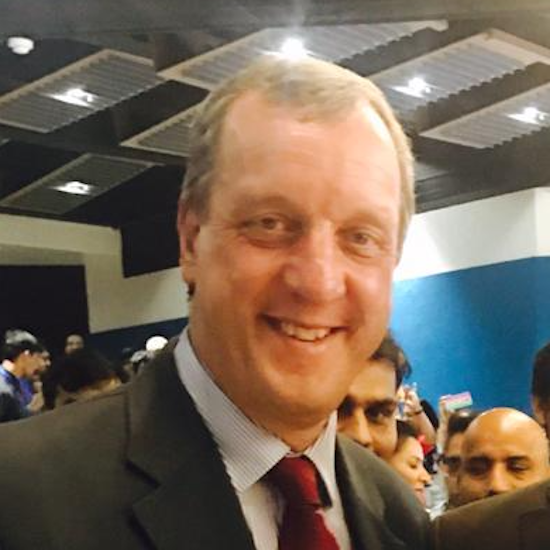
Professor Jeremy M TavaréUniversity of Bristol 
Professor Jeremy M TavaréUniversity of Bristol Jeremy Tavaré is Pro Vice-Chancellor and Executive Dean of the Faculty of Health and Life Sciences at the University of Bristol. Prior to this he was Dean of the Faculty of Life Sciences and Director of Bristol’s interdisciplinary Elizabeth Blackwell Institute for Health Research. His research focuses on the role of protein kinases in glucose transport and in cancer. After his PhD in Biochemistry, he was an MRC Travelling Fellow at the Howard Hughes Medical Institute in Dallas, before becoming a British Diabetic Association Senior Research Fellow at Bristol from 1991 to 2001. He co-founded ProXara Biotechnology Ltd, a cancer drug-discovery company, in 2001, and was Non-Executive Director of Bioganix plc from 2008 to 2009, when it was sold. He has had several roles at the MRC including as Deputy Chair of their Physiological Systems and Clinical Science Board (2003-06), Chair of the Non-Clinical Training and Careers panel (2016-20) and Chair of the Doctoral Training Programme awards panel (2021). He is currently Chair of the Scientific Advisory Board of the MRC London Institute of Medical Science on the Imperial College Campus and Chair of the Board of Trustees at Science Creates Outreach. |
| 15:30-16:50 |
Creating successful industry-academia collaborations
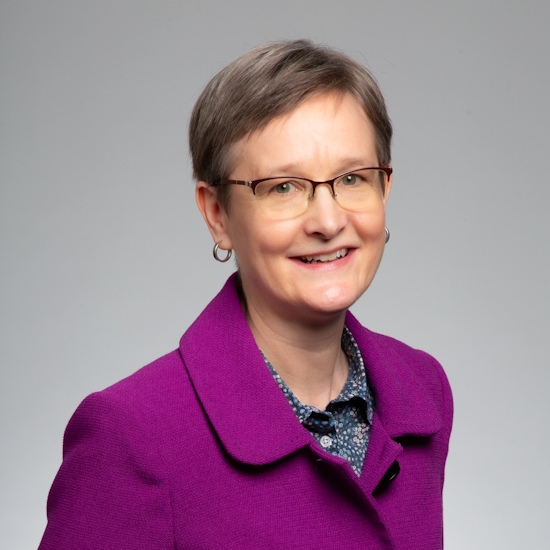
Dr Ceri BatchelderConnect&Create 
Dr Ceri BatchelderConnect&Create Ceri leads the Retrofit Development Programme for South Yorkshire Mayoral Combined Authority, to inform the strategy for large-scale housing decarbonisation. Part of the Sustainability Team, Ceri works with local and national partners to shape suitable interventions. With a background in life sciences, Ceri was a postdoc at Harvard Medical School before moving into knowledge transfer at the University of Manchester, biotech sales & marketing, tech scouting for Smith & Nephew PLC and then a director of a creative agency, developing their digital health focus. More recently, running her own business Connect&Create, Ceri has delivered economic development activities and supported digital economies in the UK and Europe, before operating as a regional connector to foster the tech startup ecosystem in South Yorkshire. As Royal Society Entrepreneur in Residence at the University of Sheffield from 2018-21, Ceri supported staff and students in enterprise and business engagement, with a particular focus on digital projects and partnerships. Dr Stephen HobbigerUniversity College London Dr Stephen HobbigerUniversity College London Beginning as a junior hospital doctor before moving to the Pharmaceutical Industry in 1989, Dr Stephen Hobbiger spent ten years at Wellcome/GlaxoWellcome in late phase drug development before joining Napp. In 2001, he returned to GlaxoSmithKline where he spent 20 years in support of the Chief Medical Officer including 10 years as the GSK Qualified Person for Pharmacovigilance (QPPV). His final substantive role before retiring in May 2021 was as Senior Vice President, Head of GSK Drug Safety and Medical Governance. Following retirement, he rejoined the NHS supporting Covid Vaccination in Cambridge and in February 2021 started as an RS EiR at University College London working on a Drug Repurposing in the Translational Research Office. He is a past Vice President of the Faculty of Pharmaceutical Medicine and has participated in several major collaborations including the EU Innovative Medicines Initiative and the Council for International Organizations of Medical Sciences. Professor Barbara Shollock, University of Warwick, UK
Professor Barbara Shollock, University of Warwick, UKProfessor Barbara Shollock is Academic Director of WMG and Professor within the Steels Processing research group. Professor Shollock joined WMG in 2014 from Imperial College London where she was a Senior Lecturer. She gained her undergraduate degree from Lehigh University, Pennsylvania and D.Phil from University of Oxford. She has been a TFR visiting Professor at Technical University of Lulea Sweden and held an industrial fellowship with The Royal Society. 
Professor James ChongUniversity of York 
Professor James ChongUniversity of York James Chong was introduced to industrial research as an undergraduate at the University of Manchester where his BSc in Molecular Biology included a sandwich year working in GSK’s Natural Products pilot plant at Greenford. He learned protein biochemistry as part of his PhD at Cancer Research UK and gained yeast genetics experience with EMBO and HFSP fellowships at Cold Spring Harbor Laboratory, New York. James returned to the UK as a BBSRC David Phillips Fellow at the University of Bath in 2000. He moved to the University of York in 2004. He was awarded a Royal Society Industry Fellowship in 2016 which allowed him to redirect his research to use ‘omics techniques to understanding the microbial community dynamics of anaerobic digestion. He currently works with Yorkshire Water, other UK water companies, and other commercial users of AD, to optimise resource recovery from organic wastes such as sewage. |
|---|---|
| 15:30-16:50 |
The Pain, the Process and the Outcomes: What you wish you knew about the venture industry before starting a spin-out
Saku SahaWoodford Investment Management Saku SahaWoodford Investment Management |
| 15:30-16:50 |
Royal Society grants and writing an application
Dr Alicia Greated, Chief Executive Officer, KTN
Dr Alicia Greated, Chief Executive Officer, KTNAlicia Greated is the Chief Executive Officer for KTN. Previously Alicia was Global Director, Research Engagement at Heriot-Watt University and prior to that, led delivery of the Newton Fund (a £735million global research and innovation fund) on behalf of BEIS, UK government. She was also founder and Director of Research Council UK (RCUK) India at the British High Commission in Delhi, and Director RCUK China at the British Embassy in Beijing. She has worked as acting Director of Research for the Arts and Humanities Research Council (AHRC) and was Head of Engineering at the Engineering and Physical Sciences Research Council (EPSRC). Alicia is a Fellow of the Institution of Engineering and Technology, Fellow of the RSA and member of the UK Government’s Jet Zero Council. She is also member of a number of advisory bodies including the Royal Society’s Science, Industry and Translation Committee and the Scottish Funding Council’s Research and Knowledge Exchange Committee. Dr Matthew Winter, University of Exeter
Dr Matthew Winter, University of ExeterMatt is a senior research fellow and Royal Society Short Industry Fellow at the University of Exeter, who’s main research interests focus on the use of zebrafish for assessing human drug safety and efficacy. Prior to joining Exeter, Matt worked for AstraZeneca for 11 years as a research toxicologist where, alongside work on understanding the effects of pharmaceuticals in the environment, he developed his interest in the use of the zebrafish for human health applications. Dr Alexander ReipOxford nanoSystems Dr Alexander ReipOxford nanoSystems |
| 16:50-17:00 |
Closing remarks
Professor Joe Sweeney, University of Salford
Professor Joe Sweeney, University of SalfordProfessor Joe Sweeney was awarded a BSc in Chemistry and elected an Associate of the Royal College of Science at Imperial College, and carried out a PhD studying synthetic uses of aziridines and allylstannanes at the University of Oxford. In 1990, Joe was appointed as Lecturer in Chemistry at the University of Bristol where he developed research projects focused on new methods for preparation and use of polyhydroxylated ring structures, aziridines and metalled furanones, and the total synthesis of several naturally-occurring lactones. He then moved to a Readership in Organic Chemistry at the University of Reading. In 2007, Joe was awarded the inaugural Faculty Output Prize at the University of Reading for his group's publication on asymmetric rearrangements, and became Professor of Synthesis and Chemical Biology. In 2008, Joe was awarded a Royal Society Industry Fellowship with AstraZeneca, which was later extended. Joe is now Dean for the School of Science, Engineering and Environment at the University of Salford. |
|---|
